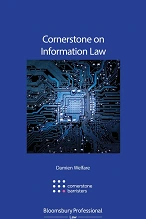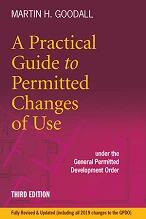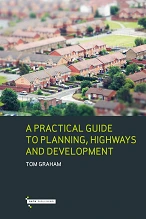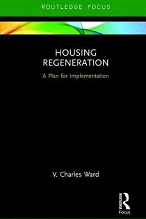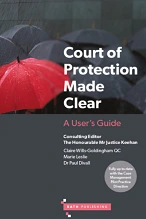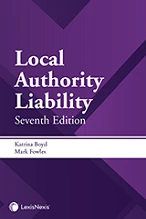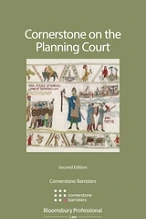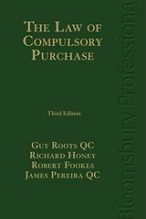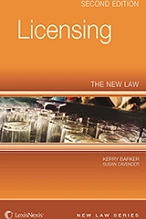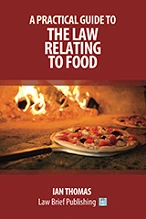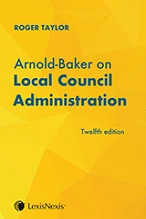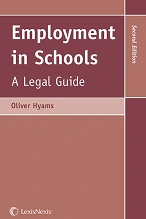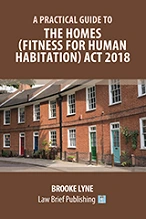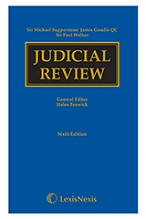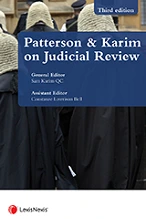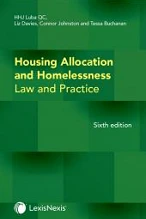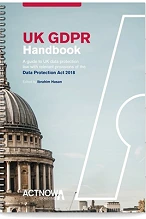Cornerstone on Anti-Social Behaviour
Cornerstone on Information Law
The Power of Neighbourhood Planning
A Practical Guide To Permitted Changes of Use (3rd ed)
A Practical Guide To Planning, Highways And Development
Housing Regeneration: A Plan for Implementation
Court of Protection Made Clear: A User's Guide (revised 1st ed)
Information Rights
Pease, Chitty and Cousins: Law of Markets and Fairs
Planning Enforcement
Statutory Nuisance
Local Authority Liability Seventh edition
Cornerstone on the Planning Court
The Law of Compulsory Purchase
A Practical Guide to Antisocial Behaviour Injunctions
Gypsy and Traveller Law
Licensing: The New Law Second edition
A Practical Guide to the Law Relating to Food
Arnold-Baker on Local Council Administration Twelfth edition
Dementia and Human Rights
Employment in Schools: A Legal Guide Second edition
A Practical Guide to the Homes (Fitness for Human Habitation) Act 2018
Supperstone, Goudie & Walker: Judicial Review Sixth edition
A Practical Guide to GDPR for Schools
Patterson & Karim on Judicial Review Third edition
Housing Allocation and Homelessness Law & Practice Sixth edition (with CD-ROM)
A guide to UK data protection law with relevant provisions of the Data Protection Act 2018
Enemies of the People? How Judges Shape Society
Cornerstone on Social Housing Fraud
Participation in Courts and Tribunals
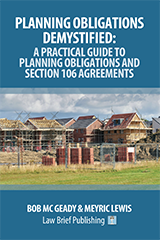 In this book we look at the requirements for a valid section 106 agreement and the underlying policy context. We also examine every day practical issues as to the contents of agreements and how certain issues can be resolved. Finally we consider the issue of enforcement of obligations in the event of non-compliance.
In this book we look at the requirements for a valid section 106 agreement and the underlying policy context. We also examine every day practical issues as to the contents of agreements and how certain issues can be resolved. Finally we consider the issue of enforcement of obligations in the event of non-compliance.
by Bob Mc Geady & Meyric Lewis
£49.99
Published: June 2019
Planning obligations and section 106 agreements have become much more prevalent in the development industry. With cutbacks in public expenditure local authorities are increasingly looking to fund infrastructure and other types of expenditure through the planning system. In this book we look at the requirements for a valid section 106 agreement and the underlying policy context. We also examine every day practical issues as to the contents of agreements and how certain issues can be resolved. Finally we consider the issue of enforcement of obligations in the event of non-compliance.
ABOUT THE AUTHORS
Bob Mc Geady has been involved in the Planning and Local Government field for over 30 years. He initially spent 17 years working for various local authorities. In that time he has dealt with a multitude of planning matters ranging from large-scale retail and housing developments to discrete one off proposals. He moved to Private Practice in 2000 and was a partner and Head of Planning and Commercial Property in Kester Cunningham John, leading a team that deals with all aspects of commercial development. He continues to act for local authorities as well as private clients and objectors, and regularly provides training sessions for officers and members of various local authorities as well as speaking at events organised by such bodies as the Local Government Group and the Royal Town Planning Institute and MBL Seminars.
Bob was an Independent Board Member of a large regional housing association and chaired a regional homelessness charity. He retains his association with Kester Cunningham John (now Ashton KCJ) as a consultant. In the Legal 500 and Chambers Directory he is rated as a leading individual for planning in East Anglia. Clients also say that he ‘has a valuable insight into the attitudes and even the politics of planners’
Chambers and Partners Directory said of Meyric Lewis that “What Meyric Lewis doesn’t know about planning law isn’t worth knowing”. He is listed as a Leader at the Bar in Chambers Directory and as a Leading Junior in the Legal 500. He specialises in all aspects of planning and compulsory purchase both at inquiries and in the courts at all appellate levels. Clients range from substantial developers to public authorities and individual developers or objectors.
CONTENTS
Introduction: General and Context
Chapter One – What Does Section 106 Permit?
Chapter Two – Tests for Validity
Chapter Three – Threshold for Validity
Chapter Four – Challenging Validity of Planning Obligations
Chapter Five – Parties
Chapter Six – Heads of Terms
Chapter Seven – Costs, Monitoring and Completion
Chapter Eight – Enforcement of Obligations


